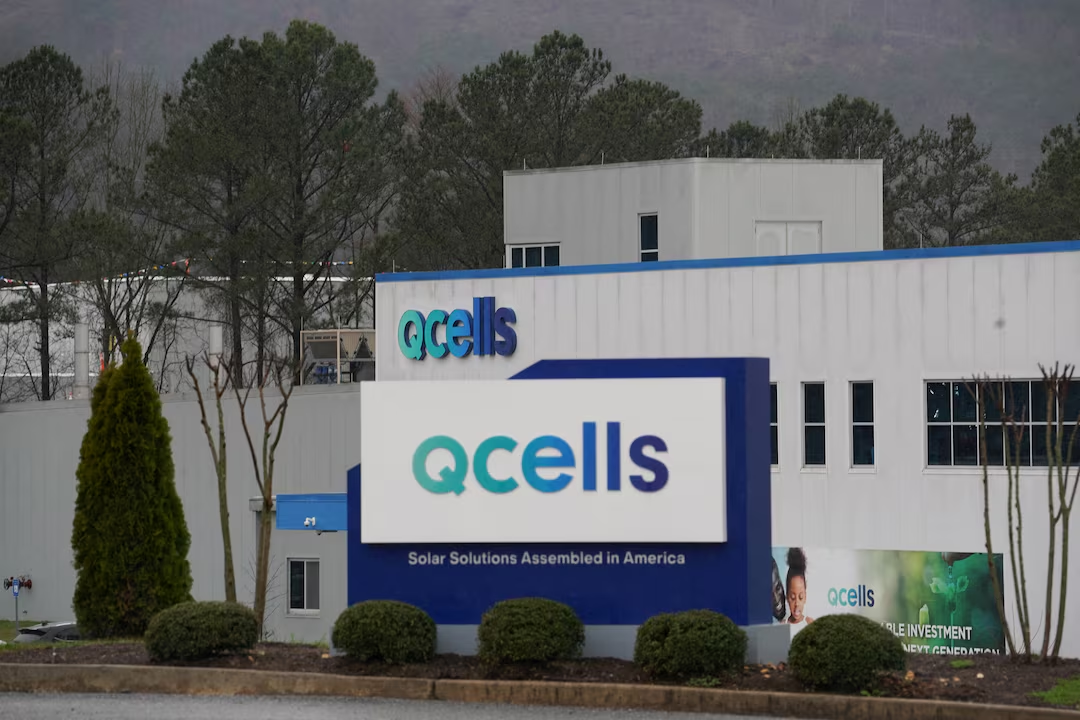CARTERSVILLE, Ga. — A potential economic disaster looms over Bartow County as the latest tax bill backed by Donald Trump threatens to strip vital subsidies from clean energy projects, putting at risk thousands of jobs and the very fabric of a community that overwhelmingly supported him. With the Qcells solar panel plant and a multibillion-dollar electric battery factory from Hyundai and SK On on the line, the consequences of this legislation could be catastrophic.
Republican Support Collides with Economic Reality
Despite being located in a stronghold of Republican support, where Trump garnered 75% of the vote, Bartow County officials are sounding alarms. The tax bill under consideration would eliminate critical tax credits that have fueled a surge in clean energy investments — a move that could directly jeopardize the 25,000 jobs promised to residents.
“Those companies came and it gave us a completely different type of industry and manufacturing for our community,” said Bartow County Commissioner Steve Taylor, expressing concern over the impact of the bill. The looming cuts could unravel years of progress in diversifying the local economy, which began with the arrival of these green energy projects.
Impact on Clean Energy Investment
According to AP News, Georgia has seen a staggering influx of clean energy projects, totaling over $20 billion and creating more than 25,000 jobs. The Qcells solar plant alone is set to employ 1,900 workers, with an average salary of $53,000. These projects were made possible in large part due to federal subsidies that incentivized domestic manufacturing of solar panels and electric vehicle batteries.
But Trump"s tax bill threatens to dismantle this progress by eliminating a 40% federal tax credit for buyers of solar panels. The removal of these incentives would not only slow down the growth of the clean energy sector but could also drive companies back to foreign manufacturers, particularly those in China, who currently dominate the market.
\n\n
Qcells says technology breakthrough could reduce space needed ...
Local Leaders Urge Congress to Act
In a rare show of bipartisan concern, 16 Republican state legislators have implored Congress to reconsider the cuts to solar panel tax credits. “We urge you not to weaken the tax credits, as doing so would only harm the manufacturing renaissance in Georgia,” they stated in a letter, highlighting a growing acknowledgment of the economic implications of the proposed legislation.
Cartersville Mayor Matt Santini echoed these sentiments, stating that it is crucial for all stakeholders to ensure that the projects remain on solid footing, emphasizing that jobs should transcend party lines. “I don’t know that people are lining up along party lines over this topic,” he remarked. The divergence between local leaders" calls for economic stability and the national party’s agenda illustrates a critical moment for Georgia’s political landscape.
Economic Implications of Partisanship
According to The New York Times, the Republican plan not only threatens to end clean energy tax credits but also proposes new taxes on solar projects. This could lead to a significant downturn in investments at a time when clean energy is crucial for combating climate change and creating sustainable jobs.
Senator Jon Ossoff has been vocal against the bill, stating, “A vote for this bill is a vote against Georgia’s economy.” His remarks highlight the dissonance between the economic interests of the state and the political maneuvering happening at the national level. As local economies shift toward clean energy, the prospect of losing those investments is alarming and indicative of a larger trend where partisanship jeopardizes community welfare.
\n\n
Hyundai in Georgia: EV, battery plant on pace to open in 2025
Future of Clean Energy in Georgia
The clean energy sector in Georgia has been buoyed by the Inflation Reduction Act, which provided necessary incentives for growth. However, the potential repeal of these credits under Trump"s tax plan may mark a regression in the fight against climate change, particularly in a state that has begun to embrace renewable energy.
As reported by AP News, the implications extend beyond job loss; they encompass a broader risk of undermining domestic manufacturing capabilities. Local businesses that have invested heavily in clean energy technologies may find themselves unable to compete, forcing them to pivot back to traditional energy sources, further exacerbating environmental degradation.
With the future of thousands of jobs and the integrity of Georgia’s clean energy landscape hanging in the balance, it is essential for local voices to be heard and for elected leaders to prioritize the economic well-being of their constituents over partisan loyalty. The time for action is now, as the repercussions of this tax bill promise to reverberate far beyond Bartow County.



![[Video] Gunfire between Iraqi security forces and Sadr militias in Baghdad](/_next/image?url=%2Fapi%2Fimage%2Fthumbnails%2Fthumbnail-1768343508874-4redb-thumbnail.jpg&w=3840&q=75)
